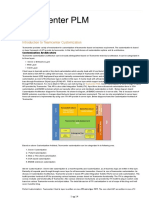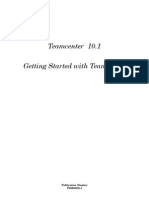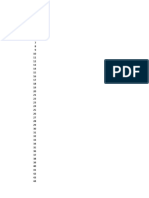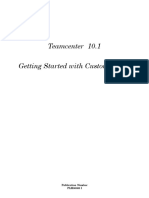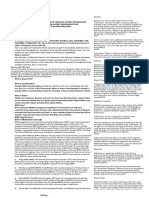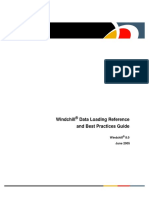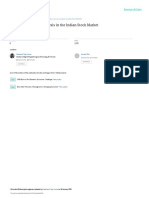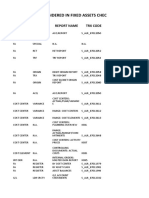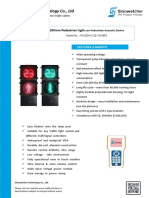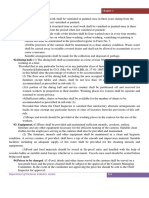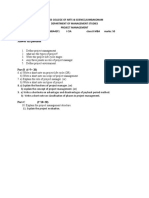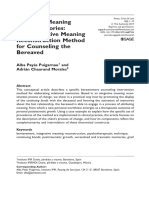SEARCH
This blog is to share my knowledge, experience and learning in Siemens Teamcenter PLM Application.
Share your valuable feedbacks. All the best!!! Happy Coding:-)!!!
Recent Posts Teamcenter
Automatic Condition Task in
Teamcenter Workflow
By Hariharan · August 20, 2020
T
SHARE
eamcenter Condition task can be configured to complete either
automatically or manually. Based on the use case, determine
Labels
which is best suited for the workflow process. If a handler can determine
Condition Query
the criteria, it is best to configure the task as automatic.
Teamcenter
Teamcenter Workflow
Workflows
Automatic Condition task
Create a query against the target.
Create a query against the task.
Create a query against subprocesses.
Action handler to set the task result to true. false or a customized
value.
Samples for automatic condition task
1. Using Query against target
Use case: Branch based on target object type. If PDF is not found in
target, route to false path
Step 1: Create a new query in query builder. For this use case, the
search class is workspaceobject and criteria is object_type=PDF
Step 2: Add a condition task in the workflow.
Select Condition task and click Task attributes.
In Attributes Panel, select Condition Query and choose the query
created in Condition query dialog.
Select Query against as Target
Scope as Any - Condition is evaluated as true if at least one PDF is
found in the targets. All - can be used for validating against
attributes for all target attachments.
Step 3: Add tasks for True and False paths.
2. Using handler to set task result
Handler: EPM-set-task-result-to-property
Reads the specified property from the identified target object and uses
the property value to set the result for the task based on which we can
branch the workflow accordingly.
Use case: Branch based on Change type of change notice revision
Step 1: Add the EPM-set-task-result-to-property action handler with
arguments as shown below in the start of Condition Task.
Step 2: Branch workflow based on the value of Change type property.
Related Posts
Introduction to Teamcenter Workflows
LABELS: CONDITION QUERY, TEAMCENTER, TEAMCENTER WORKFLOW, WORKFLOWS SHARE
Comments
Harsh Vardhan · October 12, 2021 at 5:39 PM
This Content is simply amazing, and helpful for students and business people.
Gathered lots of information and waiting to see more updates.
RPA Implementation
RPA Implementation Methodology
REPLY
hema · October 20, 2021 at 6:03 PM
This article is a creative one and the concept is good to enhance our knowledge.
Waiting for more updates.
Artificial Intelligence Online Training
Artificial Intelligence Online Course
REPLY
Sandrajohn · November 11, 2021 at 6:52 PM
Nice blog, very informative content.Thanks for sharing, waiting for the next
update…
Why learn Python?
Why is Python so popular?
REPLY
Yogalife · February 23, 2024 at 12:07 AM
Very Good keep it up!
REPLY
Real Blogger · April 7, 2024 at 3:22 PM
Very nico blogo
AppFreaky
GlobeWriters
FuryvsUsyk
DemandsDownloads
Trending Articles of the Day
REPLY
Enter Comment
Share your feedback
Popular posts from this blog
Teamcenter Relations
By Hariharan · August 23, 2020
Teamcenter Relation objects are created to relate two objects. It
connects the primary business object and secondary business
object through relation property. Relations are widely used in
Teamcenter. Out of the Box Teamcenter provides various …
SHARE POST A COMMENT READ MORE
Teamcenter custom handler build in
BMIDE
By Hariharan · September 08, 2020
In this blog we can see how to register and build a custom
handler through BMIDE. Please refer my previous blog Setting
up BMIDE for coding and building DLL to set up BMIDE for
coding. Register Custom Handler Make sure you have a active …
SHARE 1 COMMENT READ MORE
Setting up BMIDE for coding and
building DLL
By Hariharan · September 07, 2020
Coding can be done either in external coding platforms like
visual studio or using Teamcenter BMIDE application. Siemens
suggests BMIDE for coding the server side customization. In this
blog, let us see how to set up BMIDE for coding. Set up a …
SHARE POST A COMMENT READ MORE
Teamcenter Batch LOV
By Hariharan · September 07, 2020
Teamcenter offers 3 types of LOV and based on the use case,
choose the LOV type. Unlike Classic and Dynamic LOVs, Batch
LOVs are managed externally. To update or remove values from
Classic or Dynamic LOV, we need to update LOV via BMIDE and …
SHARE POST A COMMENT READ MORE
Cascading vs Interdependent LOV
By Hariharan · August 29, 2020
Cascading LOV Cascading LOV or hierarchical LOV is an LOV
whose values have their own sub-lovs. In Teamcenter, the
cascading lovs are display as levels. We can setup multiple levels
of values, the final level value selected is stored as property …
SHARE POST A COMMENT READ MORE
Basics of Teamcenter Query Builder
By Hariharan · September 14, 2020
Query Builder application in Teamcenter allows you to create
customized searches for objects in both local and remote
Teamcenter databases. Basics of Query Builder Teamcenter
Query is based on Teamcenter persistence data model. Refer …
SHARE 2 COMMENTS READ MORE
Teamcenter: Basics of Report Builder
By Hariharan · October 18, 2020
Teamcenter Report builder module allows to create custom
reports based on PLM data from Teamcenter. Teamcenter
Reports are mainly based on queries and PLMXML framework.
Report definition specifies the data to display in the report. This …
SHARE 2 COMMENTS READ MORE
Types of Property in Teamcenter
By Hariharan · August 25, 2020
Properties contains information describing the business object
like name, description and so on. For Example, A screw object
can contain properties like name, description, length, diameter,
material, etc. A business object derive its properties from its …
SHARE POST A COMMENT READ MORE
Teamcenter Preferences
By Hariharan · October 01, 2020
Teamcenter preferences are settings stored in the Teamcenter
database that provide a mechanism to control and define
Teamcenter behavior by letting you modify the interface, set
default behavior, and specify default values. Use Teamcenter …
SHARE 1 COMMENT READ MORE
Teamcenter Item Business Object
(Item Data Model)
By Hariharan · August 24, 2020
Items are the fundamental object used to model data in
Teamcenter. They are commonly used to identify an element of a
product (component, assembly, end item) or other data such as
procurement specification, test procedure, standard part, shop …
SHARE POST A COMMENT READ MORE
Powered by Blogger
:








